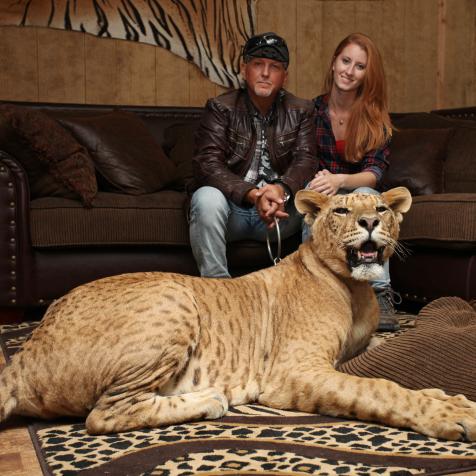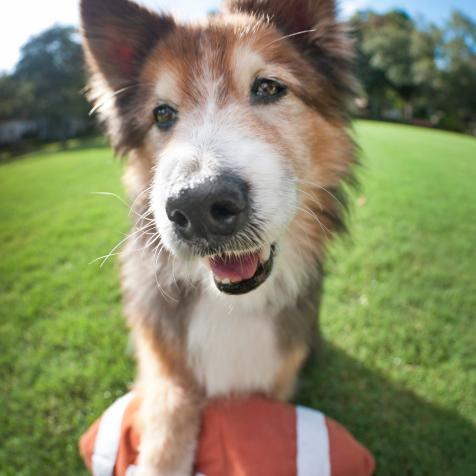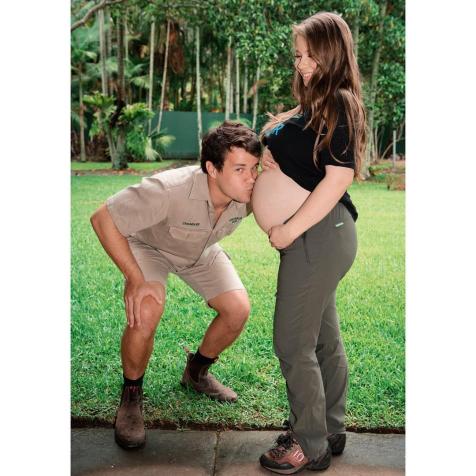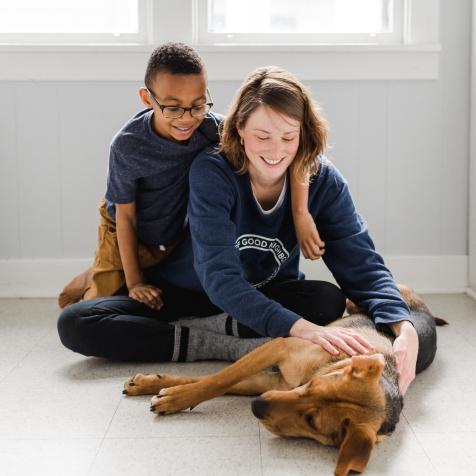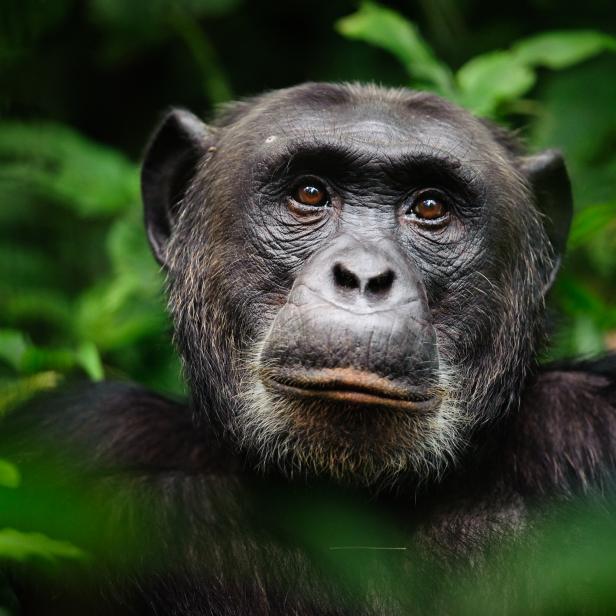
by Marc Guitard
Jimiyu the Chimp Just Got Vaccinated
On the last day of September, an unlikely patient received a COVID-19 vaccination. Jimiyu, a 29-year-old male chimpanzee living at Saint Louis Zoo in Missouri, became the first animal at the zoo to receive a dose of Zoetis.
Over the next few months, the zoo is rolling out a vaccine program to almost 100 primates, big cats, river otters, painted dogs, and bat-eared foxes, all of which carry a potential risk of being infected by COVID-19 – which is on the rise among zoo animals across the country.
The zoo is using Zoetis – specifically formulated for animals – on a case-by-case, experimental basis. No animals at the facility have been diagnosed with the virus, and the vaccines are being rolled out as a precaution.
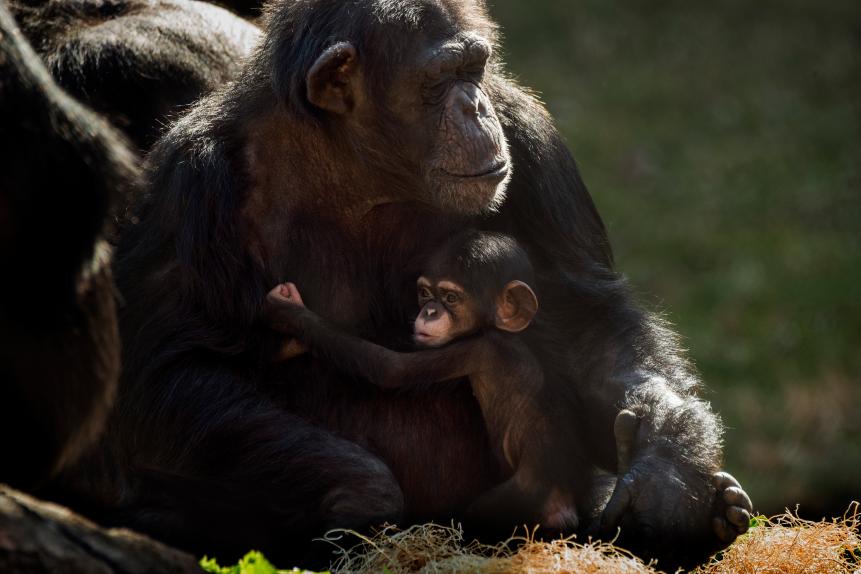
mrolands
An infant chimpanzee and her mother on March 9, 2021, at the St. Louis Zoo.
“A lot of times we’ll train them with something that’s not sharp like a needle, something dull and slowly build up that behavior until they accept a sharp needle,” Dr. Sathya Chinnadurai, the zoo’s director of animal health, said. “That includes being trained to present a body part for a hand injection so many of our primates will actually come up to the mesh interact with their keeper staff and actually present either a shoulder or a leg to be given an injection awake.”
He explained there were some animals who were a “little bit” suspicious, but that most had a good relationship with their keepers.
“And so through a lot of positive reinforcement and training, we're able to administer a lot of our vaccines to animals voluntarily.”
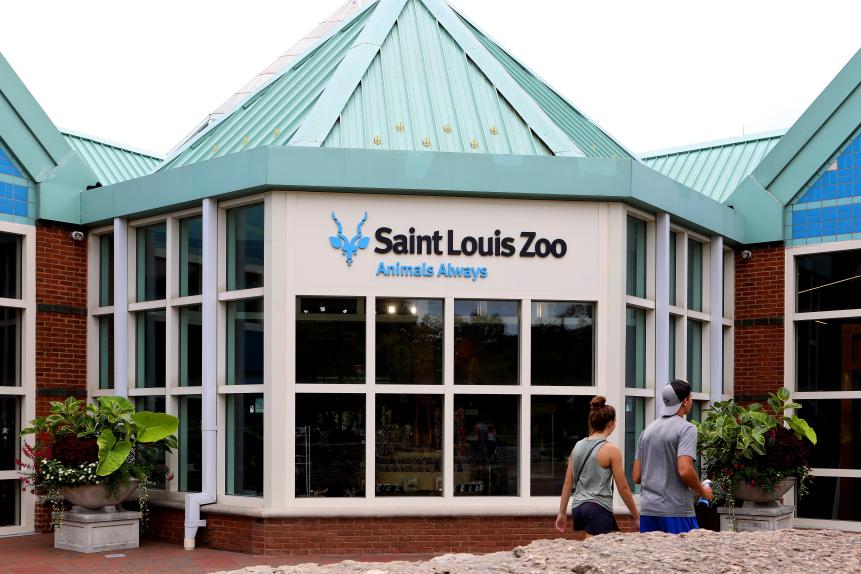
Raymond Boyd
St. Louis Zoo in St. Louis, Missouri.
A total of 35 animals at the zoo have already received their first dose, among them orangutans, lemurs, foxes, and big cats. The great apes and the big cats were the zoo’s highest priority animals to vaccinate, because they can contract and pass on the same viruses that affect humans.
There has been a recent spate of covid cases at zoos, including gorillas in Kansas City, a tiger in the Great Plains, and lions at the National Zoo in DC, all testing positive from the virus. Some of the animals had displayed symptoms such as coughing and a lack of appetite.
“There are a number of upper respiratory diseases that we could transmit to an ape or an ape could potentially transmit to a person,” Chinnadurai said. “It's a little less common for us to see this type of disease transmission go from a human to something like a big cat, but it's still definitely possible.”
The vaccine, developed by Zoetis, an animal health company, has been authorized by the US Department of Agriculture for experimental use, but it has not yet been approved by the FDA.
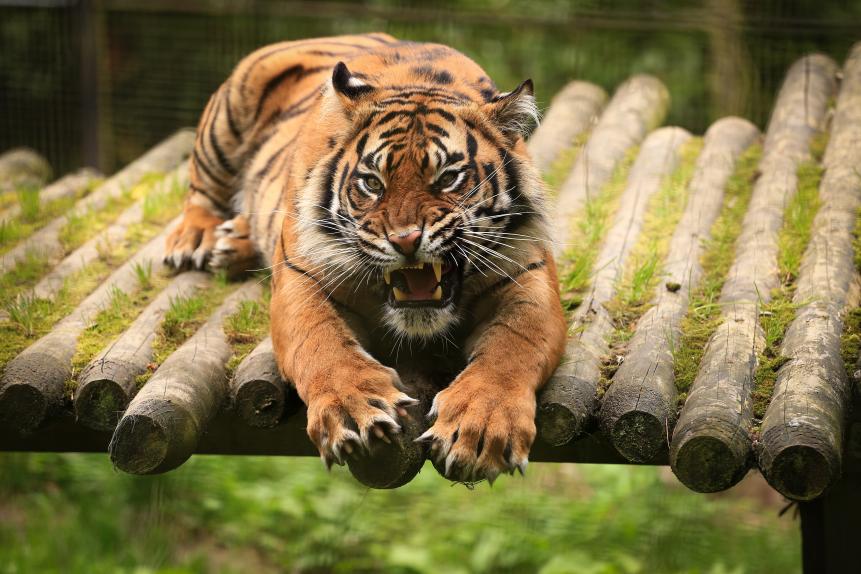
Scott-Cartwright-Photography
The zoo prioritized vaccinating big cats and chimps.
Vets believe that some animals are at risk of catching the coronavirus from respiratory droplets from humans, such as zookeepers who may have close contact with the animals.
Jimuyu, meanwhile, received the coronavirus vaccine (among others) during a regularly scheduled veterinary exam that included cardiac and dental checkups under anesthesia at the Endangered Species Research and Veterinary Hospital at the zoo.
He is recovering well in a private area in the Jungle of Apes habitat, and will be closely monitored by the zoo’s animal care teams.
“Preventive health is most of what we do here,” Chinnadurai added. “We really believe in keeping our animals healthy, not just treating them when they are sick. With cases of coronavirus infection coming up in zoos around the country, we are lucky to be able to give this vaccine to our at-risk patients.”











